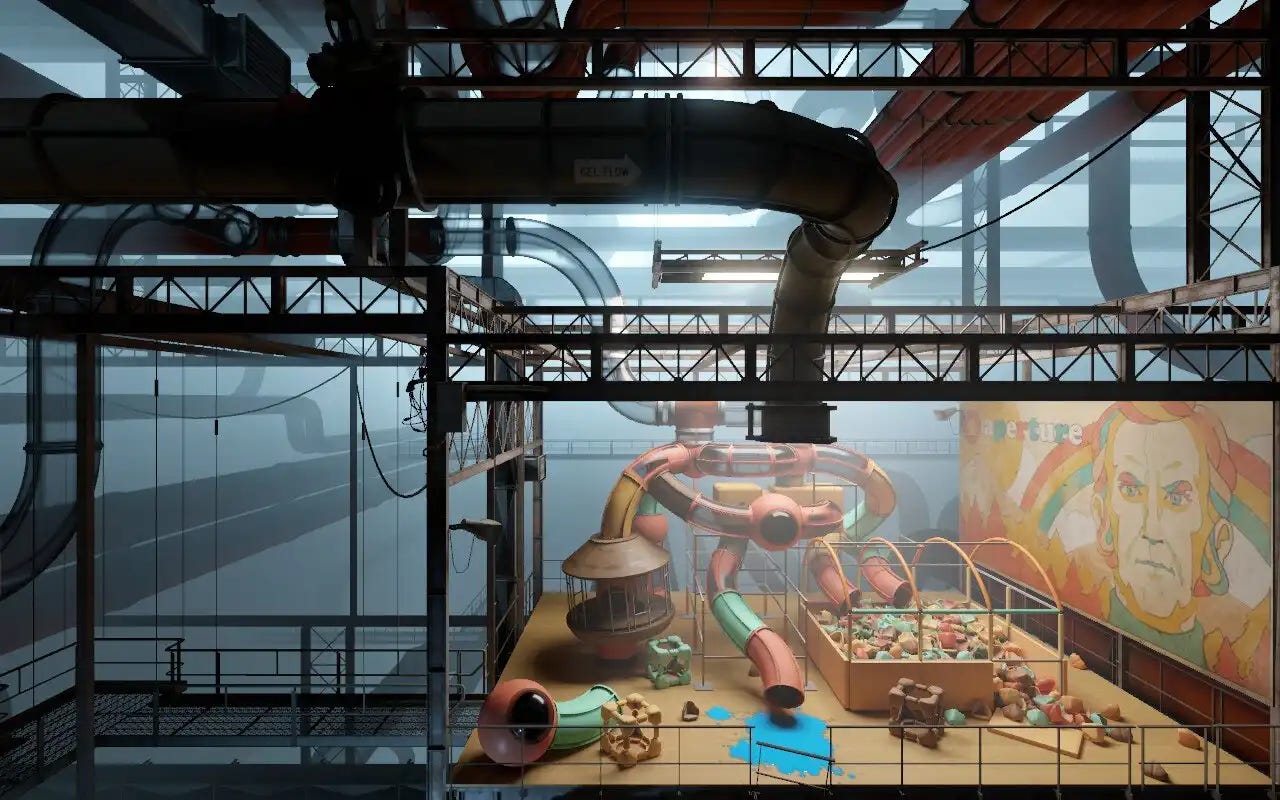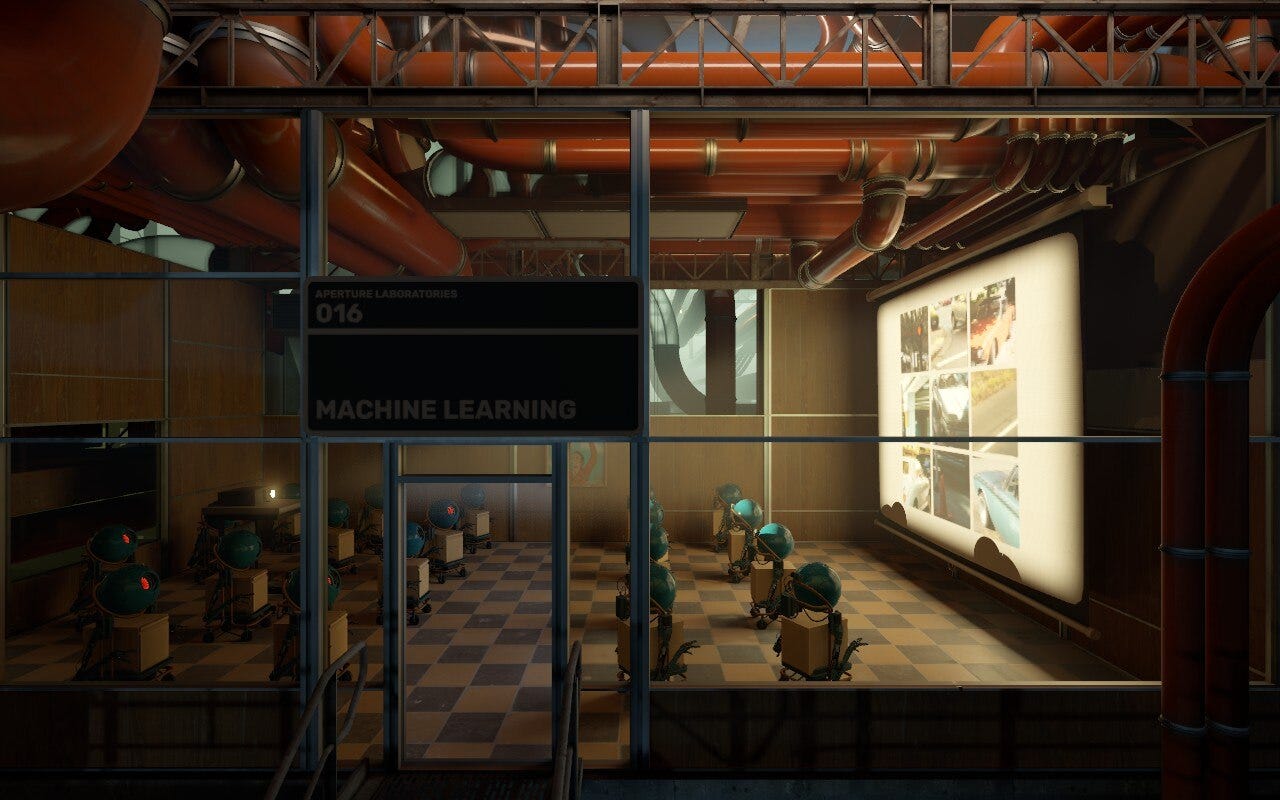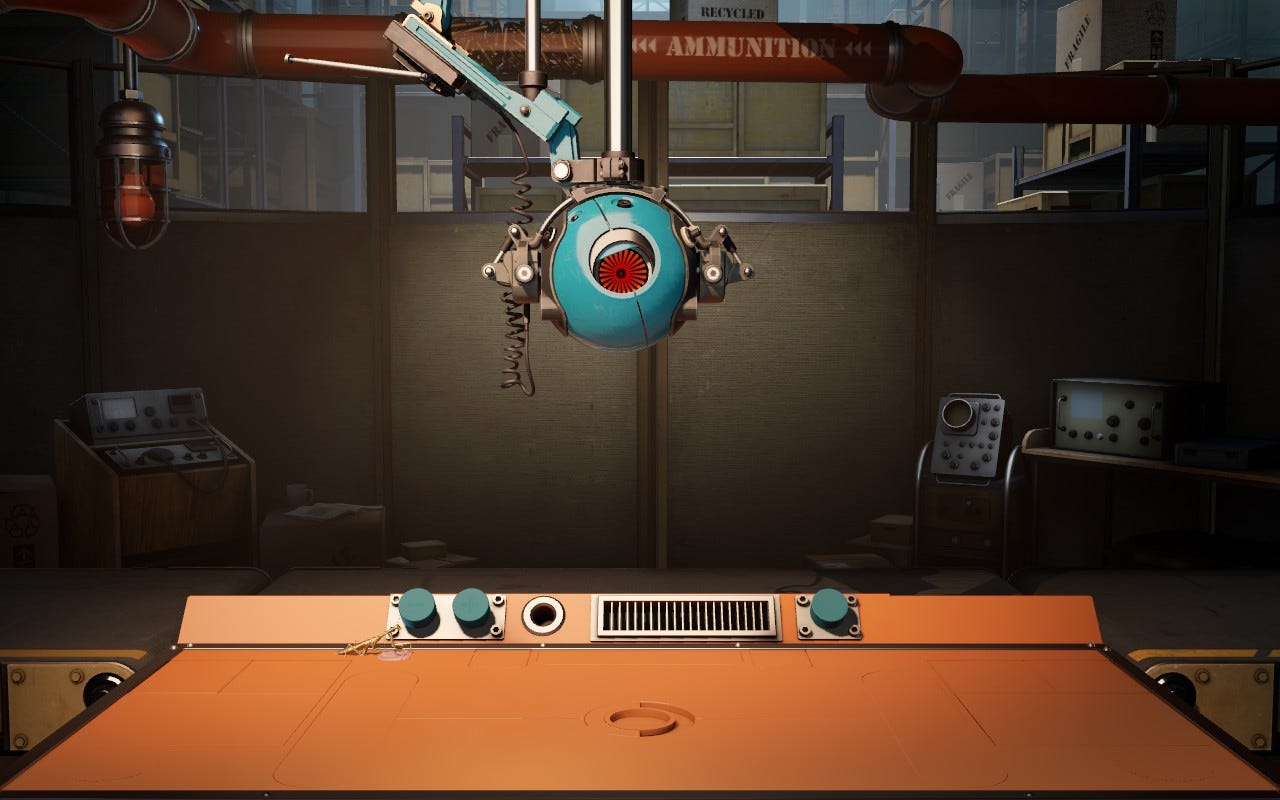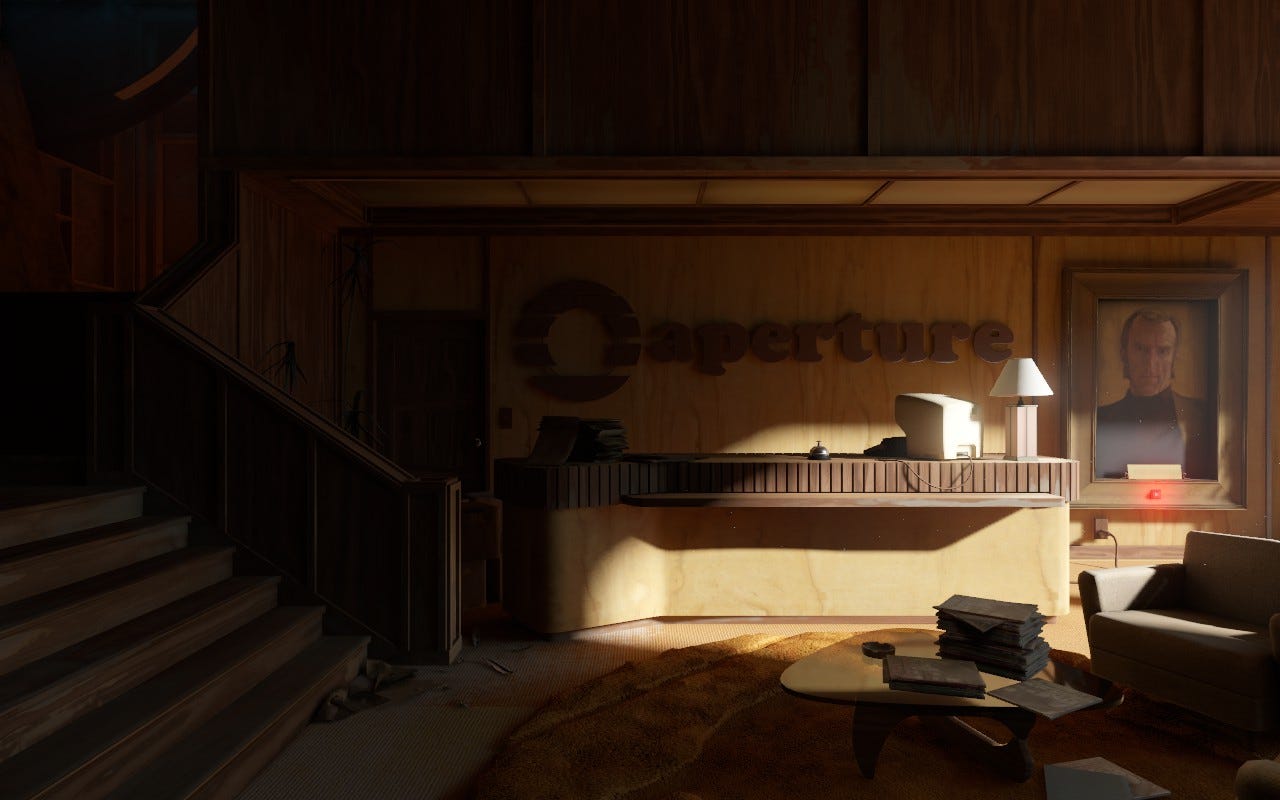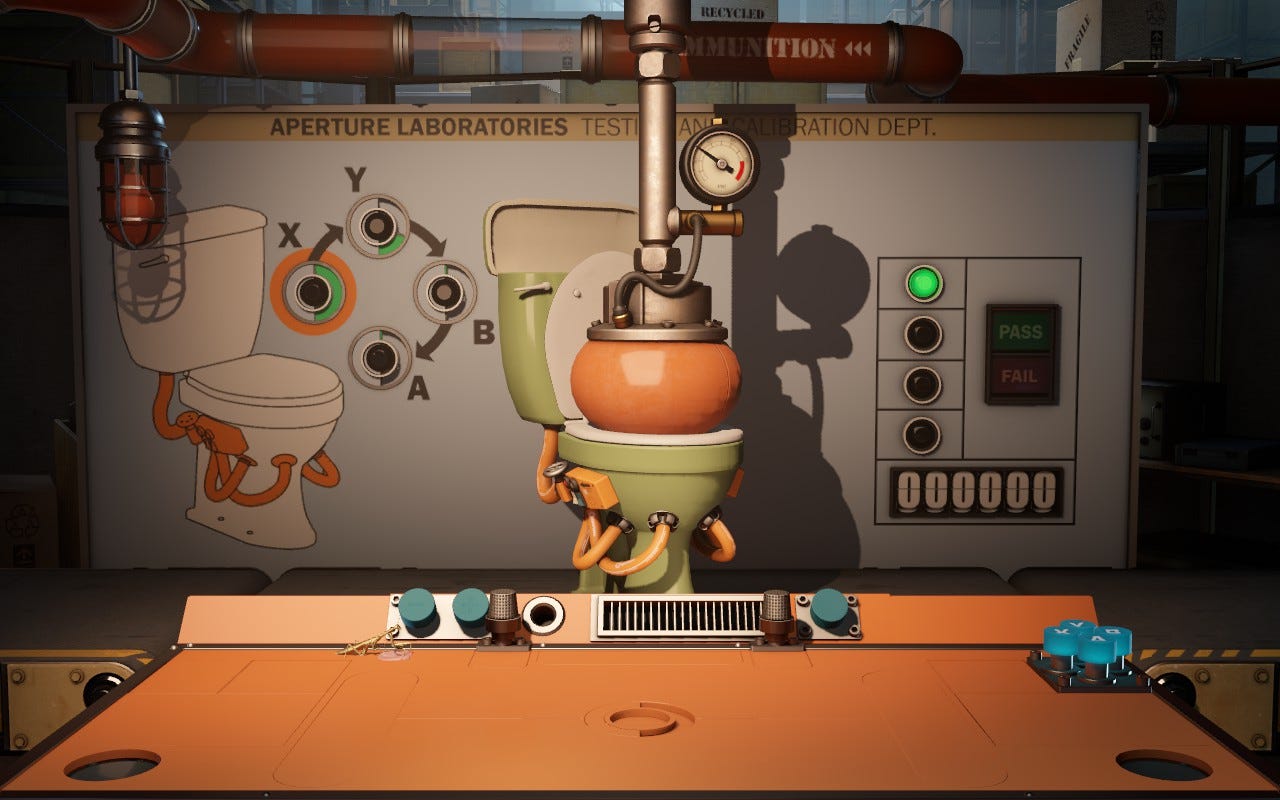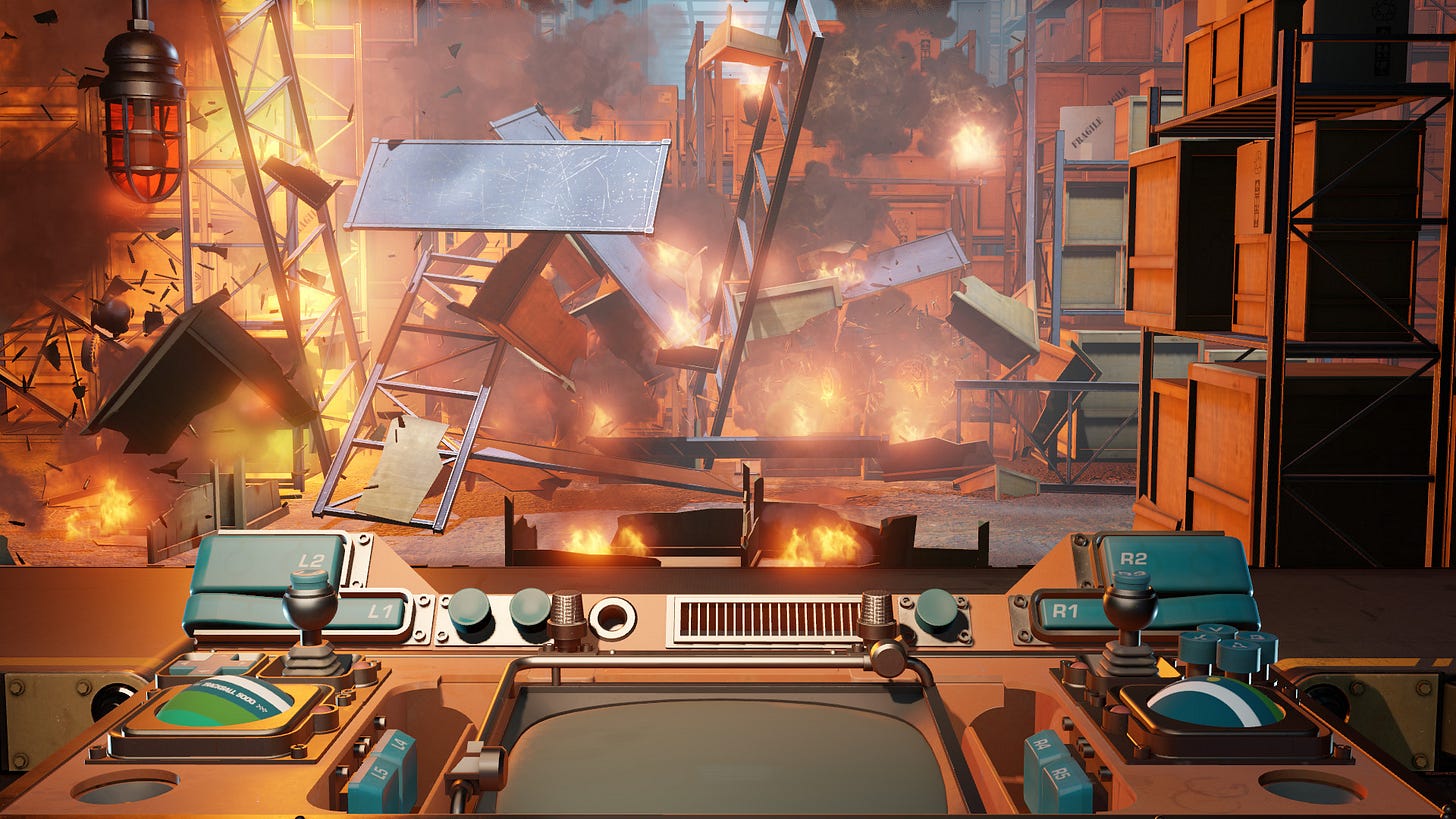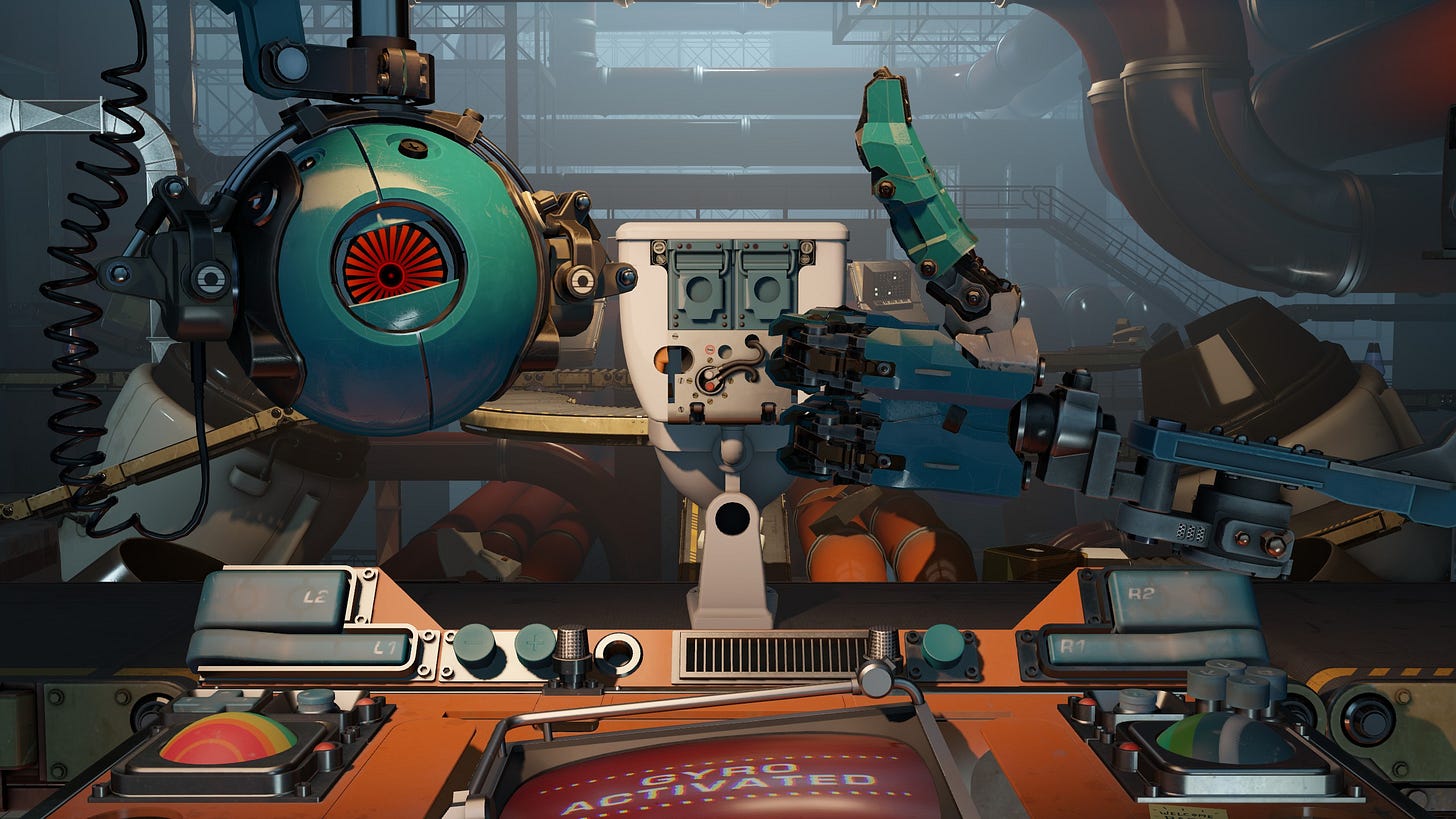Aperture Desk Job Review
Top 5 Pack-In of All Time? Valve does not miss. They're automatic with it at this point
Let me start on a tangent. The Steam Deck is the one piece of hardware that I don’t need, but I’m very glad I have. Mine just arrived a couple of weeks ago, and I already have a lot to say about this handsome little piece of hardware. It has completely reenergized my interest in PC gaming and, as a result, opened the door to a lot of indie games I would have never really considered trying otherwise. I want to get into all of this a bit deeper, but unfortunately, I’ve been a bit busy, and I’m still fiddling around with it, so that piece of content will come when I’ve had more hands-on time.
In the interim, I want to talk about a piece of software that comes included with the hardware: Aperature Desk Job. Similar to what Astro’s Playroom was for the PS5, Aperature Desk Job is a game developed by Valve to help users get accustomed to the Steam Deck and its many features. It’s essentially a playable instruction manual, and what a dang good manual it is. It is the tried and true strategy of “show, don’t tell”, acting as a pristine ambassador for the console.
The game is relatively short, about 30 minutes long, but it reminded me of something I had (embarrassingly) sort of forgotten: Valve really knows how to make games. The personality and technical skills that are shown off in this bite-sized experience pulled feelings from me that many multi-hour-long experiences fail to. It’s like when my favorite rappers drop features on random songs just to remind me why they’re the best of the best (ex., Churchill Downs and God Did). Now and then, Valve steps out of the shadows and into the spotlight to remind everyone why they hold the crown in this industry.
Aperature Desk Job takes place in the Portal universe. You’re a run-of-the-mill employee tasked with inspecting toilets. You’re managed by Grady, an A.I.-driven robot with the classic Portal A.I. personality and humor. The boring inspection job quickly begins to get less boring by the minute as the plot starts to spiral out of control. By the end, you not only understood the core functionality of the Steam Deck, but you’re also reminded why it would be a great disservice to the gaming industry if we never see a Portal 3.
I don’t want to go on too long about why a pack-in title is one of the best games I’ve played this year, but I do want to take a moment to talk through Valve’s expert-level craftsmanship. On the technical side, they display the power of the hardware. The graphical details in this game are gorgeous. The lobby the game begins felt used and stylized to a very specific era that existed in this universe. Lifelike dust particles were floating in the air. No joke, I stared at a carpet for over a minute, just amazed by the level of detail I was seeing. It’s like watching a Pixar film and wondering why you can see the third person in the grocery line’s lip fuzz: there’s just an obscene level of attention put into everything on screen.
The gameplay met the same bar of quality, affirming a Steam Deck hardware decision every few minutes. Why do I need a touch screen on the Steam Deck? Well, Valve showed me by letting me sign a set of papers. Why do I need gyro controls? Valve gave me a shooting gallery to test it out, and I was actually a little annoyed at how good it felt. What about the back buttons? I’ll never use those, right? Wrong again. My desk was equipped with a large arsenal of…abilities that could only be activated using the back buttons, and it didn’t feel terrible. It’s easy to put features in a game and have them come off gimmicky or useless; it’s a thin line to walk, but just like Team Asobi did with the PS5 and Dualsense, Valve did a great job reassuring me about the capabilities of the Steam Deck.
I talk about gameplay and graphics a lot on this site. They’re core fundamentals to immersive gaming experiences. But they were not really the reason I decided to write this article. The writing was what pushed me to my laptop to start typing. I’m honestly a bit frustrated that so much talent is seemingly going to waste at a company that puts out so few games. The sad reality about video games right now is that the wide majority of them have writing that is striving to be bearable. PlayStation’s claim to fame is that over the last decade-plus, they’ve managed to repeatedly craft enticing stories for players to latch on to. Valve has that same talent. In this game, there are really only two characters that have extended dialogue, but there are dozens of storytelling elements that come together to keep the player interested. Whether it is the perfectly timed visual and written comedic moments, the side stories that start to play out in the background of the main story (all I’ll say is, praying mantis), or just the incredible performances from J.K. Simmons and Nate Bargatze. Those who have played games from the Portal franchise know what I mean. Nothing about the writing feels stiff or corny. Interactions feel absurd yet organic, like watching an animated short. I didn’t realize I had been missing for the past few years until I was about 2 minutes into this game. The feeling is like you’re not being ushered along to get to the next mechanic or attending a history lesson in the game’s convoluted lore. It’s simply a fun story where you are cast as one of the leading roles.
This may be a pack-in demo for the hardware, but it’s also Valve flexing their muscles on everyone, reminding us all that their projects never amount to luck. Now, I want to make it clear that I don’t think that all games need to hit this bar. By no means do I think this game was an easy product to make; the credits were lengthy, and we know quite well how long Valve likes to work on projects to make sure they’re absolutely perfect before release. That being said, it’s baffling how few equally sized teams have been able to match their level of video game craftsmanship over the last 15 or so years. Valve is hard at work on getting the Steam Deck in people’s hands, but I really hope we get another proper title from them sooner rather than never. Until then, this is a must-play for all Steam Deck owners.


